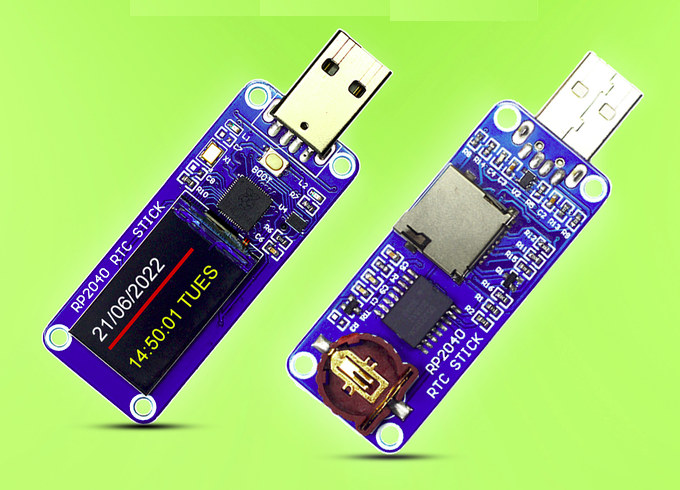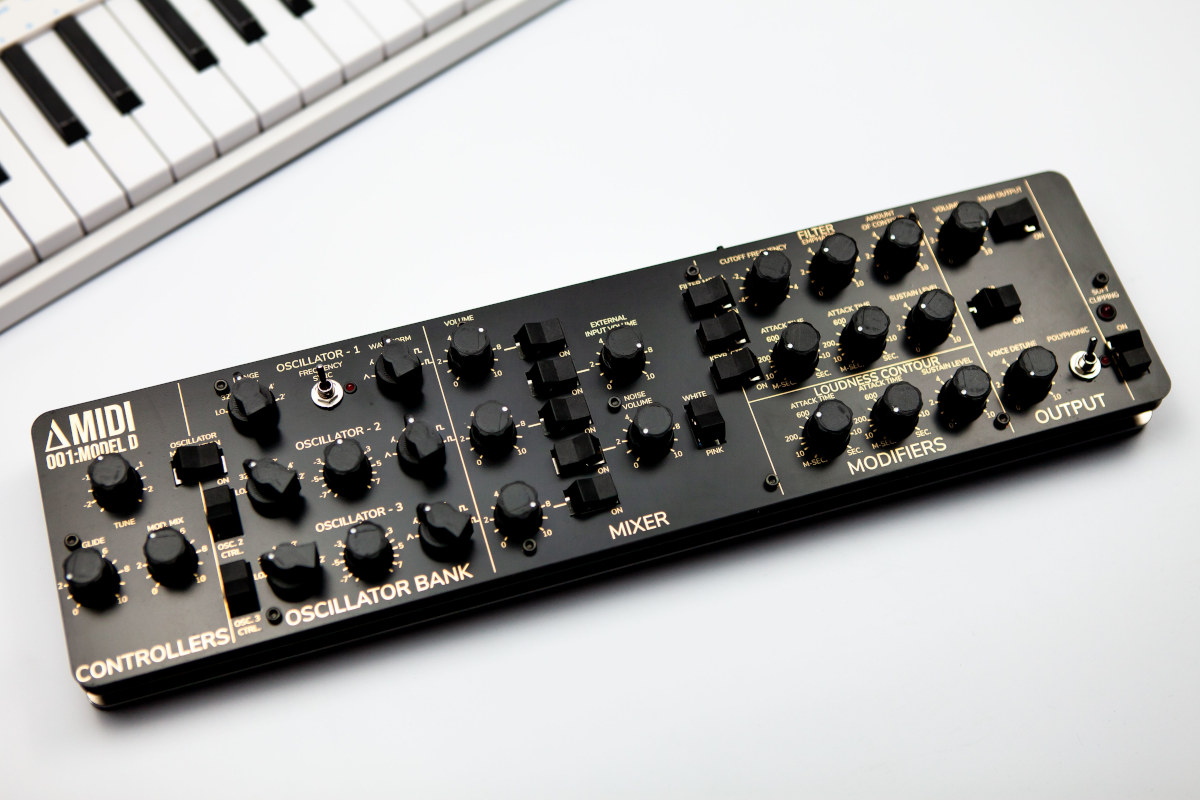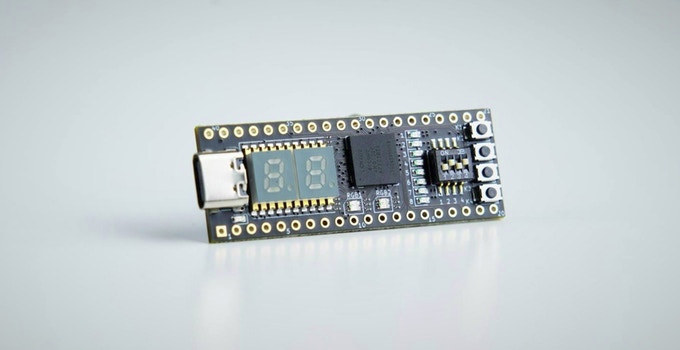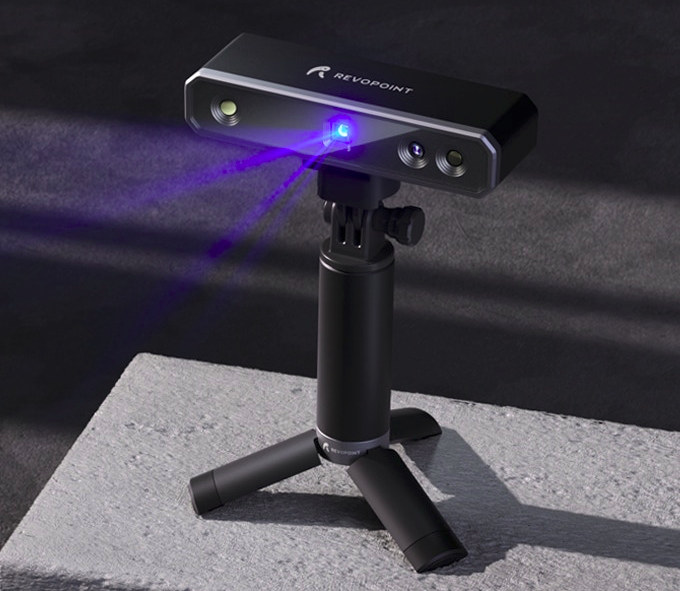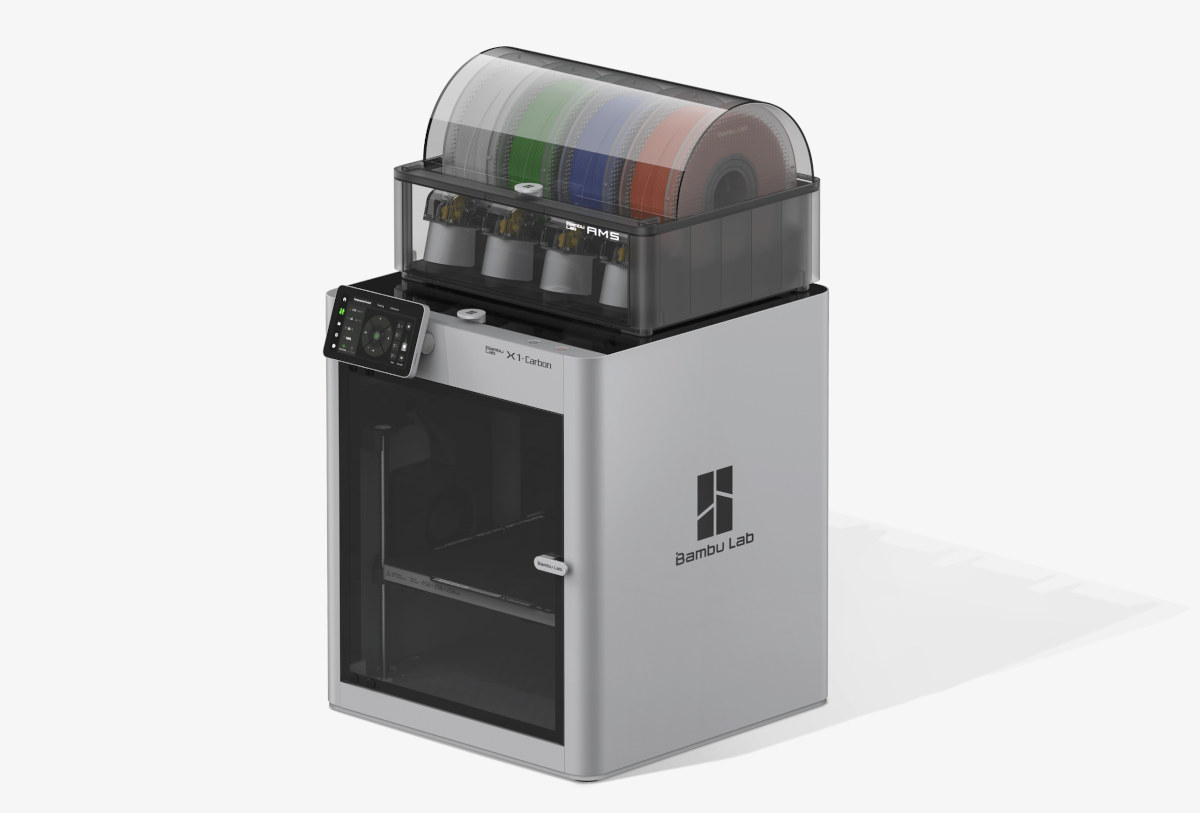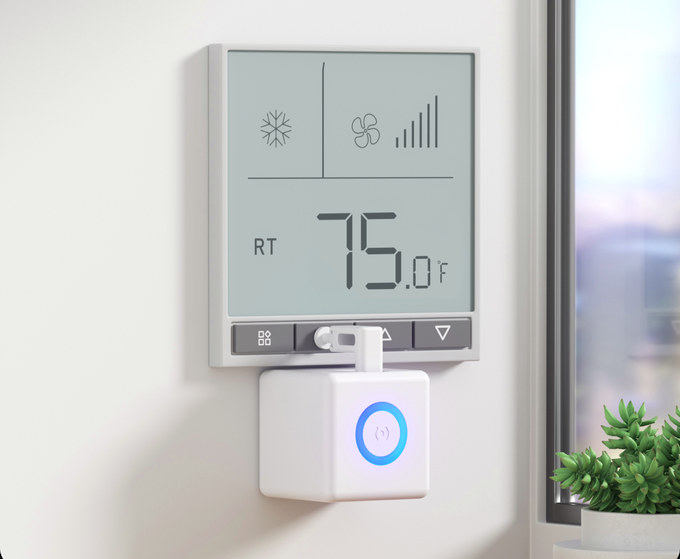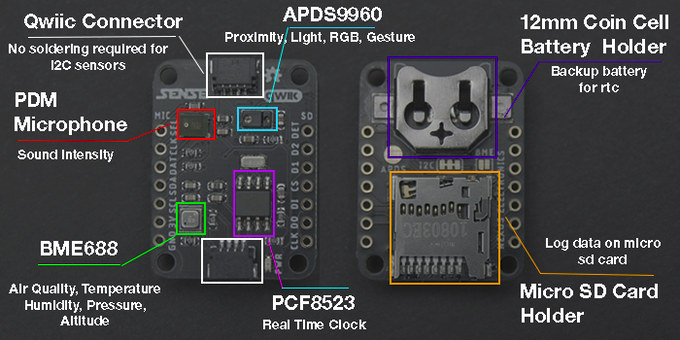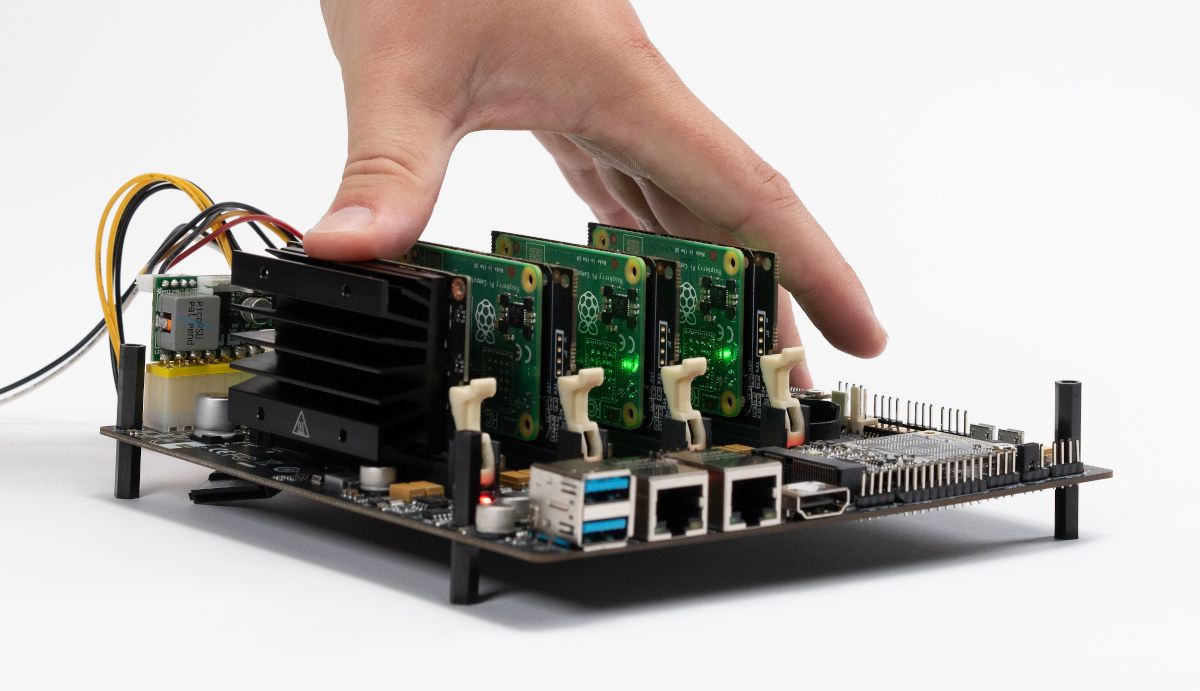SB Components’ EncroPi is a USB key based on the Raspberry Pi RP2040 microcontroller that can be used to log data, encrypt data, or as a secure key, and it also features a DS3231 real-time clock with a backup battery to store the data and time. The USB key also comes with a small 1.14-inch color display to display information such as time and date, and should be programmable like the Raspberry Pi Pico with MicroPython or C/C++. All photo shows a USB Type-A port, but based on user feedback the company will also make a USB Type-C version. EncroPi specifications: MCU – Raspberry Pi RP2040 dual-core Cortex-M0+ microcontroller @ 133 MHz with 264KB SRAM Storage – QSPI flash, MicroSD card slot Display – 1.14-inch color LCD with 240 x 135 resolution USB – 1x USB 2.0 Type-A or Type-C port (should it be USB 1.1 instead?) Misc – Boot […]
Arduino-based MIDI controller brings Minimoog Model D synthesizer back to life (Crowdfunding)
ΔMIDI 001:model D is an Arduino-based MIDI controller inspired by the Minimoog Model D synthesizer first introduced in the early 1970’s, but not in production anymore. The MIDI controller is compatible with VST (Virtual Studio Technology) plugins designed for the Minimoog synthesizer, DAWs (Digital Audio Workstation), and as an open-source, can be directly modified or tweaked by its user. ΔMIDI 001:model D key features and specifications: MCU – Arduino-compatible ATMega microcontroller Controls 21x analog potentiometers 6x 6-stage knobs 15x toggle switches 2x lever switches 3x LED indicators 44x physical controls in total. Sync button for instant settings transfer. Map button for changing MIDI mapping on the fly. Class-compliant MIDI-USB protocol implementation Eurorack-compatible design Dimensions – 425 x 110 x 48 mm Weight – 1100 grams Materials – Three layers of fiberglass reinforced laminate with an additional layer of sheet aluminum. All CNC-machined. The 001:model D MIDI controller has been tested […]
STEPFPGA FPGA board is programmable with a Web IDE (Crowdfunding)
STEPFPGA MXO2Core miniature FPGA development board is based on Lattice MXO2-4000 FPGA, and designed for education with an easy-to-use Web IDE, instead of the more traditional tools that can be frustrating to use, and detailed tutorials. The board also comes with a 2-digit segment display, some LEDs, push buttons, and a 4-way DIP switch, as well as two rows of twenty pins for I/O expansion, and a USB Type-C port used for power, programming, or mass storage. STEPFPGA MXO2Core specifications: FPGA – Lattice Semi MachXO2 X02-4000 FPGA with 4320 LUTs Display – 2-digit segment display USB – 1x USB Type-C port for power, programming (UART), and mass storage Expansion – 2x 20-pin headers with up to 36x GPIOs, SPI, I2C, 3.3V, VBUS, GND; breadboard-compatible Misc – 2x RGB LEDs, 8x red LEDs, 4-way DIP switch, 4x push buttons Power Supply – 5V via a USB port Dimensions – Small four-layer […]
Revopoint MINI 3D scanner digitizes small objects with 0.02mm precision (Crowdfunding)
Revopoint MINI is a 3D scanner using high-resolution blue light that’s designed for smaller objects such as figurines, coins, jewelry, etc… that require a higher level of detail achievable thanks to the promised 0.02mm precision. The 3D scanner follows last year’s Revopoint POP 2 color 3D scanner with 0.1mm accuracy for larger objects, and the main differences are the lack of color scanning and the higher resolution most suitable for smaller objects, but also possible for larger objects while holding the scanner with one hand. It would just take longer since the MINI’s single capture range is 118 x 64mm, instead of 210 x 130mm for the POP 2. Revopoint MINI specifications: Technology – Dual camera blue light Single capture – Accuracy: up to 0.02mm, range/area: 118 x 64 mm Point distance – 0.05 mm Working distance – 100 to 200 mm Minimum scan volume – 10 x 10 x […]
Bambu Lab X1 – A color 3D Printer with LIDAR and AI for improved accuracy, ease of use (Crowdfunding)
3D printing can be time-consuming and challenging, and even today, it’s still not as easy as using a photocopier, but the team at Bambu Lab has taken it upon itself to make a better, easier-to-use 3D printer with the X1 color 3D printer combining LIDAR and AI technology to level the bed, calibrate the prints, and detect anomalies. The Bambu Lab X1 3D printer supports up to 16 colors, is making removing support easier with snap-away material or dissolvable filament, can handle PC and PA-CF filaments beyond the traditional PLA and PETG filaments, manage up to 500 mm/s prints, and provides better prints with features such as active vibration compensation. Oh, and you don’t need to assemble it, since it comes fully assembled and ready to use out of the box. There are two models of the 3D Printer with X1 and X1 Carbon with the latter featuring more sturdy […]
Fingerbot Sense Zigbee or Bluetooth LE button pusher adds touchless control (Crowdfunding)
When we first wrote about Fingerbot Bluetooth mechanical button pusher to add automation control to (dumb) home appliances over two years ago, I was not convinced about the solution. But it must have gained enough traction, as Adaprox has now launched a sensor version – the Fingerbot Sense – with either Zigbee or Bluetooth connectivity, plus a new touchless control function. It works just the same way as before, simply place the Fingerbot Sense on top of a physical button, and control it with your smartphone, a voice assistant like Amazon Alexa or Google Home, or with the new touchless control, simply wave your hand in front of the button without having to touch it. Fingerbot Sense specifications: Connectivity – Bluetooth LE 4.2 or Zigbee 3.0 Stall torque – 2.0 kgf.cm Maximum movement – 12 mm Optional Toolpack with short, medium, long straight arms, rocker arm, ring arm, cushion blocks […]
$30 compact multi-sensor board works with any microcontroller with I2C (Crowdfunding)
SENSE is a compact multi-sensor board supporting measurement of air quality, sound, light intensity, temperature, proximity, etc… and designed by Zack Seifert, a seventeen-year-old electronics enthusiast and president of his school’s robotics team. SENSE can work with any microcontroller or processor with I2C (hardware or implemented with bit-banging), including Arduino and Raspberry Pi boards. and an extra Qwiic connector allows for additional sensors. SENSE board specifications: Storage – MicroSD card holder Sensors
Turing Pi 2 mini-ITX cluster board supports RK3588 based Turing RK1, Raspberry Pi CM4, and NVIDIA Jetson SoMs (Crowdfunding)
We first covered the Turing Pi V2 mini-ITX cluster board supporting up to four Raspberry Pi CM4 or NVIDIA Jetson SO-DIMM system-on-module in August 2021. The company has now launched the Turing Pi 2 on Kickstarter with a little surprise: the Turing RK1 module with Rockchip RK3588 Cortex-A76/A55 processor and up to 32GB RAM. The board allows you to mix and match modules (e.g. 3x RPi CM4 + 1x Jetson module as on the photo below), and with SATA ports, Gigabit Ethernet networking, USB 3.0 ports, mPCIe socket, you could build a fairly powerful homelab, learn Kubernetes, or self-host your own apps. Turing Pi 2 specifications: SoM interface – 4x 260-pin SO-DIMM slots for up to four Raspberry Pi CM4 with Broadcom quad-core Cortex-A72 processor, up to 8GB RAM, up to 32GB eMMC flash (adapter needed) NVIDIA Jetson Nano/TX2 NX/Xavier NX SO-DIMM system-on-modules with up to 6x Armv8 cores, and […]


